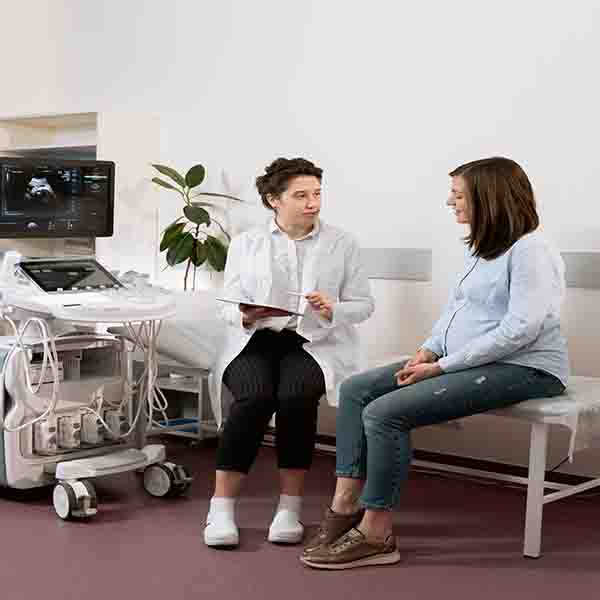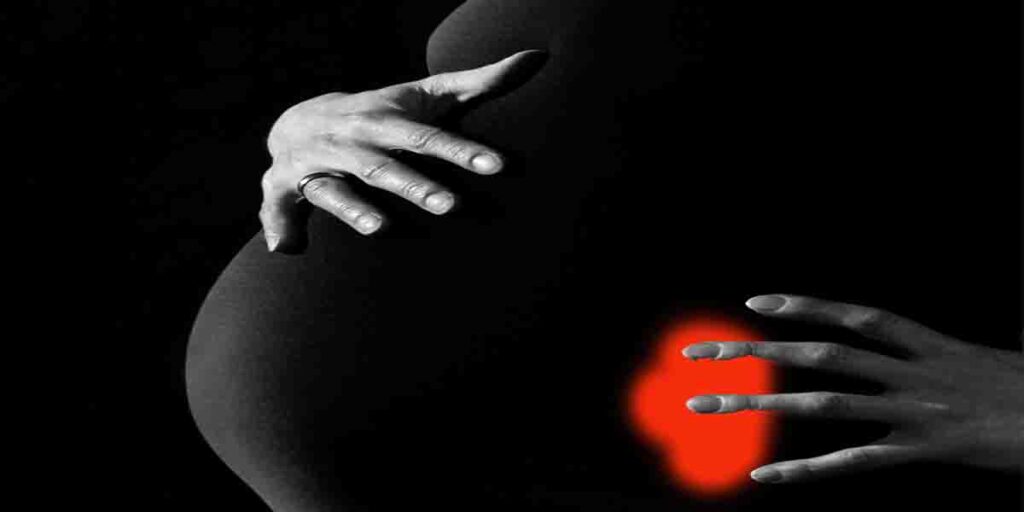Kidney stones are not a rare condition in pregnancy. Although it is almost similar to the percentage in non-pregnant women (1 in 1500), it is a very important condition during pregnancy. The most crucial issue with kidney stones during pregnancy is the pain. Most important part of the management is how to relieve kidney pain during pregnancy.
Although the diagnosis and the management of a renal stone should be made by an experienced clinician, you should have a good idea of how to deal with kidney stones during pregnancy. Therefore you need to know symptoms, risk factors, management, and other background knowledge on kidney stones during pregnancy.
Unless you might have to face difficulties due to the kidney stones while pregnant.
What is a “Renal stone”/ “Renal Calculi”?
Renal stones are one of the ordinary conditions in a human. When you have a stone in your kidney, they are called a “Renal stone” or” Renal calculi,” according to the medical terminology. Usually, renal stones are seen in 9% of women and 19% of men during their lifespan.
These stones are different in size, safe, and composition too. In addition to both kidneys, there are other sites for stones in the urinary tract. This includes both ureters and the bladder. Then they may be termed ureteric stones or bladder stones, depending on the site.
kidney stones while pregnant
Why are kidney stones a critical condition during pregnancy?
As mentioned earlier, you should have a proper understanding about kidney / renal stones during pregnancy. There are some important reasons for that.
- Pregnancy increases the risk of renal stones.
- Renal stones are often present as pregnancy symptoms.
- Diagnosis and the management of renal stones differ from those in ordinary people.
- Kidney stones are excruciating and may cause problems during your pregnancy too.
Cervical Cerclage – Everything you need to know
How the pregnancy increases the risk of kidney stone formation?
When you are pregnant, your physiology of body changes a lot. Each and every system have its own changes. One of the main changes in pregnancy is the increased blood flow and the “glomerular filtration rate (GFR).” This causes a 50 – 60% increase in your urine output.
In addition, some other changes increase the calculi formation and increase the rate of kidney stones while you are pregnant.
The residual volume in the bladder gets increases during pregnancy. This causes the retention of urine in the bladder and the kidney. As a result, you can get kidney stones during pregnancy.
Your uterus increases its size day by day. As a result, the pressure on your bladder increases daily. As a result, you can dilate your ureters (Physiological hydroureter) and enlarge your kidneys (Physiological hydrophones). This hydro-nephrosis also can cause the formation of stones during your pregnancy.
Your urine output is increased when you are pregnant. This may cause dehydration. This dehydration can cause kidney stones while you are pregnant.
What are the symptoms of kidney stones during pregnancy?
The most critical and problematic symptom of kidney stones during pregnancy is pain. The pain of calculus is a severe aching type of pain. It will start from your back and radiate to the genital area. This is on-and-off severe pain. In medicine, we often mention this pain as urinary colic.
In addition to the pain, there are some other symptoms when you have Renal/ Bladder calculi.
- Red-colored urine.
- Urge to urinate
- Increasing of frequency of urination
- Nausea
- Headache.
How to differentiate pregnancy symptoms from kidney stone symptoms during pregnancy?
Pregnancy is associated with many background conditions, like ectopic pregnancies, miscarriages, etc. The pain during this condition may be similar to the pain of kidney stones in pregnancy. Therefore you should consider not only ectopic or miscarriages but also kidney stones if you get this type of pain while pregnant.
In addition, you can get the pain of confinement almost similar to this pain. Therefore you should not forget this if you get hurt during pregnancy. However, the diagnosis of kidney stones while you are pregnant should be made by a clinician.
How to diagnose kidney stones during pregnancy?
As mentioned above, the diagnosis of most abdominal pain during pregnancy should be made by an expert obstetrician or a general practitioner. The diagnosis of most pregnancy conditions is made by ultrasound scan. As it is a less invasive process.
In the general population, we use the symptoms, signs, and some investigations like urine full report (UFR), X-ray KUB, etc. Sometimes we use the CT KUB to diagnose renal stones.
However, we do not use X Rays during pregnancy. Especially we should not use CTs to diagnose kidney stones while pregnant. These can harm your baby.

The optimum tool for diagnosing kidney stones during pregnancy is the ultrasound scan Kidney-Ureter-Bladder (USS KUB).
Treatments for renal stones during pregnancy
The treatments of renal calculi (kidney stones) during pregnancy differ from the general management of kidney stones. Although most of the management methods are similar to the non-pregnant population, there is unique management for kidney stones during pregnancy.
The management of renal stones during pregnancy needs a unique approach.
The most important thing is the multidisciplinary approach for the individual case. It should include Obstetrician, Urologist, Radiologist, Neonatologist, and anesthetic. This will improve both maternal and fetal outcomes.
Additionally, the pain management of the kidney stones is very crucial part of the management. It is very important to relieve pain of the renal colic and urinary colic. In a patient with renal stones, these pains are frequent. You have to learn how to relieve kidney pain during pregnancy to avoid unnecessary troubles with renal colic.
1. Expectant management
If you have a stone smaller than 5mm, it will pass spontaneously. Even stones less than 10mm can pass during pregnancy. It is found that around 68% to 84% of kidney stones during pregnancy are treat with supportive care only. This includes adequate hydration, pain relive and etc.
a. Adequate Hydration
The hydration state is essential in the management of kidney stones during pregnancy. Adequate hydration will facilitate the passage of calculi most of the time.
b. Adequate pain relief
Managing the pain during renal colic (sudden passage of stone with severe pain) is one of the essential procedures. Even though NSAIDs are not indicated for renal stones during pregnancy, opioids can be given with close monitoring. You need to know some ways of how to relieve kidney pain during pregnancy.

c. Prevention of infections
In some cases, renal stones are associated with upper urinary tract infections. In such situations, we need to be concerned about antibiotics.
2. Medical management
In addition to the supportive therapy, we can try some smooth muscle relaxation medication to facilitate the renal stone. Alpha-blockers and calcium channel blockers are the most commonly used smooth muscle relaxant for management. Prazosin and Nifedipine are two of the standard medication in the direction of kidney stones during pregnancy.
3. Surgical management
Although most renal calculi settle with supportive therapy, we sometimes need active measures. Some important occasions require active interventions. For example, if the kidney stone is more than 1cm, we need to concentrate on surgical efforts. In addition, there are some other occasions like bilateral obstructed kidney, infected obstructed kidney, etc.
Then we can use surgical methods to relieve the acute obstruction of the passage or as a long-term treatment option. In pregnancy, surgical options are limited because of the risk of radiation and general anesthesia. However, there are still some options to treat kidney stones during pregnancy.
a. Temporary measures
If your passage of urine is blocked, your kidney will fail soon. In such situations, we must do either J-J stenting or percutaneous nephrostomy (PCN). This will prevent acute kidney damage.
b. Long-term treatments
Even if you temporarily relieve of blockage, you sometimes need to go for definitive treatment options.
However, most popular methods like Extracorporeal shock wave lithotripsy and Percutaneous nephrolithotomy can’t be used due to risks in pregnancy.
As a result, you may have to undergo a ureteroscopic stone removal method.
Reference :
- Meher, S., Gibbons, N., & DasGupta, R. (2014). Renal stones in pregnancy. Obstetric medicine, 7(3), 103–110.
Online at: https://doi.org/10.1177/1753495X14538422 - Seitz C, Liatsikos E, Porpiglia F, et al. Medical therapy to facilitate the passage of stones: What is the evidence? Eur Urol 2009; 56: 455–471.
Online at : doi:10.1016/j.eururo.2009.06.012

